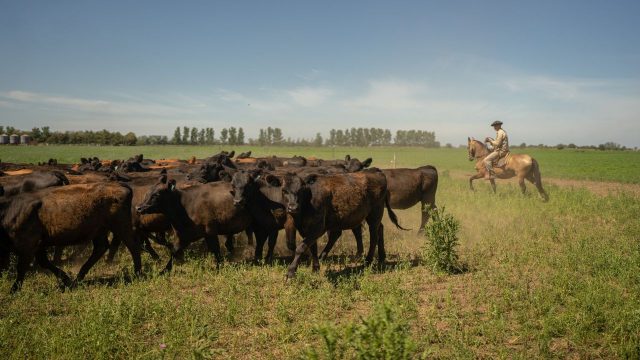
President Donald Trump has pushed an “America First” platform since taking office, but some farmers — many of whom voted for Trump — are starting to feel that he has not kept his promise. This sentiment is particularly strong among beef farmers, since Trump has pledged to sharply increase imports of beef from Argentina, leaving many rural laborers with complaints. This issue is compounded by the continually rising cost of beef in the U.S.
Why is Trump importing Argentinian beef?
His plan is part of an effort to reduce the price of beef. These price hikes have become a “major part of the 3.1% increase in food prices over the past year,” said The Hill. Beef in particular has increased 15% year-over-year because of a “combination of environmental factors and tariffs imposed in Trump’s trade war.” To combat this, Trump announced plans to “quadruple beef imports from Argentina.”
This will involve raising the “tariff rate quota on Argentine beef to 80,000 metric tons,” which “will let the country ship more of its beef to the U.S. at a lower rate of duty,” said Reuters. But there may also be another motive, as it is “likely another move to support Argentina’s economy and its embattled president, Javier Milei,” said the Wisconsin State Farmer.
How have American farmers responded?
Trump’s decision has led to “feuding with some of his most loyal supporters,” said The Hill, including congressional Republicans and GOP farmers who support him. The president has “centered his economic agenda on reducing the U.S.’ reliance on cheaper foreign products and boosting domestic production of goods and food,” something farmers say his Argentinian beef plan goes against.
The plan caught “many cattle producers off guard,” and may not actually affect the cost of beef in the U.S., experts say, per the High Plains Journal. When considering the “likely imported volume, possible changes in imports from other countries and probable duration of increased Argentina-based imports collectively, I expect very little change in national beef or cattle prices to follow,” said Glynn Tonsor, professor in the department of agricultural economics at Kansas State University, to the Journal.
Industry lobbyists also panned the decision. Trump’s Argentinian plan is a “misguided effort to lower the price of beef in grocery stores,” the National Cattlemen’s Beef Association said in a press release. The “efforts to manipulate markets only risk damaging the livelihoods of American cattlemen and women, while doing little to impact the price consumers are paying at the grocery store.” Trump has retorted that cattle ranchers “don’t understand that the only reason they are doing so well, for the first time in decades, is because I put tariffs on cattle coming into the United States,” the president said on Truth Social.
But many farmers don’t seem to buy into Trump’s premise. “ It feels like a slap in the face to rural America,” said Destinee Weeks, a cattle rancher in Oklahoma, to NPR. “It makes you feel invisible and overlooked.”
“Everything that the president is messing with and interfering with affects my farming operation,” John Boyd Jr., a cattle farmer in Virginia and the founder of the National Black Farmers Association, said to NPR. “I’m opposed to Argentina getting anything else from the United States.”
‘It feels like a slap in the face to rural America,’said one farmer





